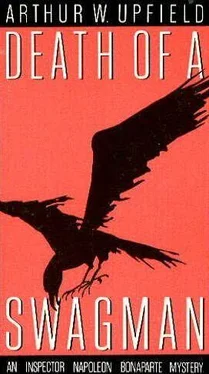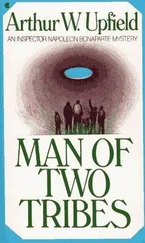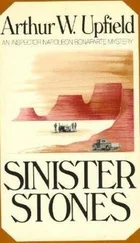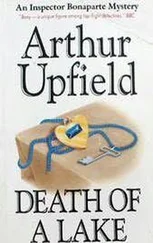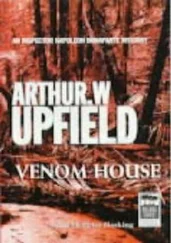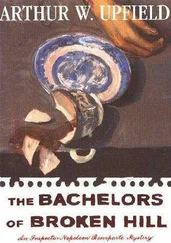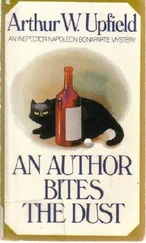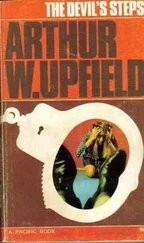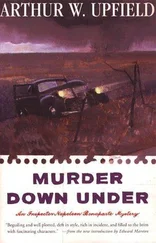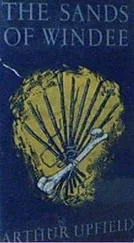Arthur Upfield - Death of a Swagman
Здесь есть возможность читать онлайн «Arthur Upfield - Death of a Swagman» весь текст электронной книги совершенно бесплатно (целиком полную версию без сокращений). В некоторых случаях можно слушать аудио, скачать через торрент в формате fb2 и присутствует краткое содержание. Жанр: Классический детектив, на английском языке. Описание произведения, (предисловие) а так же отзывы посетителей доступны на портале библиотеки ЛибКат.
- Название:Death of a Swagman
- Автор:
- Жанр:
- Год:неизвестен
- ISBN:нет данных
- Рейтинг книги:4 / 5. Голосов: 1
-
Избранное:Добавить в избранное
- Отзывы:
-
Ваша оценка:
- 80
- 1
- 2
- 3
- 4
- 5
Death of a Swagman: краткое содержание, описание и аннотация
Предлагаем к чтению аннотацию, описание, краткое содержание или предисловие (зависит от того, что написал сам автор книги «Death of a Swagman»). Если вы не нашли необходимую информацию о книге — напишите в комментариях, мы постараемся отыскать её.
Death of a Swagman — читать онлайн бесплатно полную книгу (весь текст) целиком
Ниже представлен текст книги, разбитый по страницам. Система сохранения места последней прочитанной страницы, позволяет с удобством читать онлайн бесплатно книгу «Death of a Swagman», без необходимости каждый раз заново искать на чём Вы остановились. Поставьте закладку, и сможете в любой момент перейти на страницу, на которой закончили чтение.
Интервал:
Закладка:
The frowning sergeant did not reply.
“The man reached the hut along its north wall, and he came to the door and went inside. He went inside, I repeat, and he closed the door and he has not come out.”
“Then he must be still in there?” asserted Marshall.
“Naturally. The tracks proved that he arrived and went in. There are no tracks to prove that he has come out.”
“Well, what’s it all mean? You seem to know.”
“Let us get out of the car.”
On alighting from the car, Bony stood beside its rear mudguard and invited Marshall to join him. The sergeant’s interest was kindled.
“You see,” Bony continued, melodramatically waving his hands, “you see a work of wondrous artistic beauty, a work revealing the ultimate in balance and mathematical exactitude. There the perfect beauty of line etching the Walls of China against the sky, and all about us the same beauty of line in the miniature waves of the sand ripples. To the undiscerning eye, inall this vast picture presented to our eyes today, there are no straight lines save those made by man when he erected that hut, the tank stand and the mill and the lines oftroughing. Even that natural gutter over there which carried water the other day down from the higher land is not straight for even an inch. It would seem that the Master Potter is incapable of moulding a straight line. Satan’s hell is probably built on straight lines-the flames even having no curves in them. Do you see the spent match which I flicked away a moment ago?”
“Yes.”
“Look at the ground immediately to the left of the match. What do you see?”
“Nothing. The ground is smooth.”
“I can see straight lines immediately to the left of the match, and also beyond the match and this side of the match. I am confident that when we approach the door of the hut we shall see straight lines also imprinted on the nice, clean, and apparently smooth sand. Come with me to the match, and with it I will trace the straight lines for you to see more clearly.”
Bony squatted beside the match and the sergeant bent down beside him. With the point of the match Bony indicated lines so finely drawn that even then Marshall found difficulty in following them. When they stood up Marshall waited for his superior in bushcraft as well as in rank to speak.
“There are no straight lines in nature,” Bony repeated. “Therefore those straight lines were made by a man. A man walks direct from Wattle Creek Station to that hut, goes inside and then comes out again, shuts the door, and walks backwards away from it, at the same time carefully wiping out his boot prints with the aid of lengths of sacking strips tied to the end of a stick. Why he left like that, why he was so anxious to prevent others seeing that he had left, is a problem which can wait awhile. We can, meanwhile, read it in another way. The man from Wattle Creek went into the hut and has not come out. A second man came and went, and flailed out his tracks from the sand in order to prevent others from knowing that he had visited the place. Being human, he could not do other than make straight lines with his flail. I am almost sure that there were two men, and that one of them is still inside the hut.”
“Well, let’s go and find out,” pressed the sergeant.
“Slowly! Slowly!” murmuredBony, and Marshall noted that when he walked towards the closed door of the hut he walked on the toes of his feet and his hands were clenched tightly. They halted two yards from the door.
“Again I offer thanks to that police photographer for unwittingly introducing me to a nice meaty case,” Bony said softly. “The man who so carefully flailed out his boot prints was most careful not to tread on the tracks made by the man who is still inside. Look! He reached the hut at its south-east corner, or left by it, and he did not put foot on the low doorstep, as the man did who is still inside. When you open the door, sergeant, you are going to receive a surprise.”
Sergeant Marshall was now standing stiffly erect. His face was a mask in which his eyes were unwinking orbs. He said, ice in his voice:
“I think I can smell the surprise.”
“I have done so for the last half hour. Will you open the door, or shall I?”
“Me… I’m no chicken,” growled Marshall.
“One moment. The door handle. It may possibly have retained the fingerprints of the man with the flail.”
“Of course,” snapped Marshall. “I’m a fool.”
He whipped a handkerchief from a pocket, wrapped it about the brass handle, and with a firm grip turned it and flung inward the door.
Their gaze became riveted for an instant on a pair of old boots suspended about twelve inches from the floor. Then, slowly, their gaze rose upward, up the trousered legs, up the old blue shirt, up to the awful face of the man hanging from a crossbeam.
A great swarm of blowflies came out through the open doorway to break the silence with hateful buzzing.
“Do you know him?” Bony asked with apparent calmness.
“No. Never seen him before. What do you think-suicide or murder?”
“I give murder first preference because of the man with the flail. He was probably here when that poor wretch arrived. I would that the interior was much larger, but we must go inside.”
The interior measurements of the hut were ten feet by ten feet. More swiftly than he had moved for some time, Bony stepped by the suspended corpse and reached the far side, where he quickly raised the trap-door opening which served as a window.
“Ah, the obvious story is as follows,” he said. “The man entered the hut. Then he tossed his swag on to the bunk and removed from it the two leather straps. Having done that, he dragged the table almost beneath the crossbeams, climbed up on it, joined the two straps together after making a noose with the end of one passed through its own buckle, fastened the end of the other to the beam and slipped the noose over his head and about his neck, and then stepped off the table. But why, if he arrived with the intention of committing suicide, did he close the door? And if he had no intention of suiciding when he arrived, why did he not visit the well for water? For he did not possess a water bag.”
“You think he was hanged, then?” Marshall asked.
“I think he was hanged. You had better go back for Dr Scott and Gleeson. Phew! Let’s get out.”
Having hastily closed the trap window, they went outside and closed the door.
“What about making arrangements for having the body removed to the morgue?” Marshall suggested. “TheJasons can do that.”
“Wait! Er -no. Not a word about this affair to anyone in Merino, not even to Gleeson and the doctor until you have left with them. And also, not a word to a living soul, now or in the future, about that game of noughts and crosses on the door, and about the blemish of straight lines on Nature’s handiwork. They shall remain two little secrets to be shared only by you and me.”
Chapter Eight
Tracks on the Walls of China
DURING THOSE SECONDS of horror following the opening of the hut door, Sergeant Marshall changed from the very human being he had permitted himself to become back to the coldly calm, efficient police administrator. He refrained from saluting only by a fraction of time before striding to his car and driving away across the waste of white sand to the fringe of bush and scrub timber.
There had also occurred a subtle change in Bony. The easy and apparently careless movement familiar to Sergeant Marshall was replaced by taut, spring-controlled action-the difference marked in a cat when, following its master about a garden, it sights its prey within stalking distance.
Despite his long association with crime in its worst degree, he had never become indifferent to the proximity of death, for beneath the veneer of the cultured white man the black man’s fear of the dead lurked deep within his subconsciousness. It was, therefore, with unusual haste that he set to work to remove the door handles, thankful that the screw gave easily to the point of his penknife.
Читать дальшеИнтервал:
Закладка:
Похожие книги на «Death of a Swagman»
Представляем Вашему вниманию похожие книги на «Death of a Swagman» списком для выбора. Мы отобрали схожую по названию и смыслу литературу в надежде предоставить читателям больше вариантов отыскать новые, интересные, ещё непрочитанные произведения.
Обсуждение, отзывы о книге «Death of a Swagman» и просто собственные мнения читателей. Оставьте ваши комментарии, напишите, что Вы думаете о произведении, его смысле или главных героях. Укажите что конкретно понравилось, а что нет, и почему Вы так считаете.
